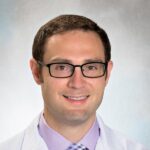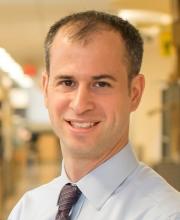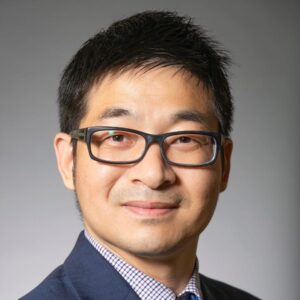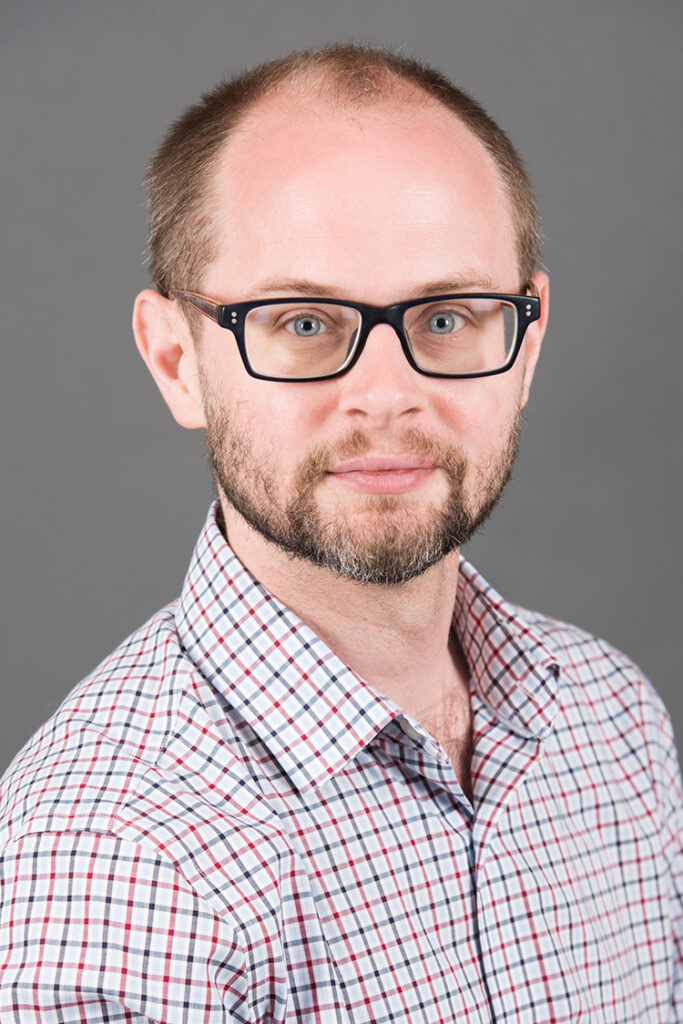William Renthal, MD, PhD
Brigham and Women’s Hospital
Program Director, Project 1 Lead, Multi-omics Core Lead
Dr. Renthal is the Director of Research at the John R. Graham Headache Center in the Department of Neurology at Brigham and Women’s Hospital. He is also an Assistant Professor of Neurology at Harvard Medical School. He completed his MD, PhD, and neurology residency at the University of Texas Southwestern Medical Center, and his clinical fellowship in Headache Medicine at Brigham and Women’s Hospital. His postdoctoral research training was with Dr. Michael Greenberg at Harvard Medical School.
He is board certified in neurology and provides patients with comprehensive headache care including advanced diagnostics and personalized treatment plans, which may include behavioral/complementary therapy, medication and/or procedures (e.g. nerve blocks, Botox).
Dr. Renthal’s research laboratory focuses on the genetic and epigenomic mechanisms underlying migraine and chronic pain. He has published over 40 peer-reviewed articles and book chapters on his research.
Clifford Woolf, PhD, MB, BCh
Boston Children’s Hospital
Co-PI, Project 2 Lead
Clifford Woolf is Director of the F.M. Kirby Neurobiology Center and the Neurobiology Program at Boston Children’s Hospital. He trained for his MD and PhD at the University of the Witwatersrand in Johannesburg South Africa before joining University College London, where he was a professor of neurobiology. Woolf moved to Boston as the first incumbent of the Richard J Kitz Chair of Anesthesia Research at Harvard Medical School and established the Neural Plasticity Research Group, based in the Department of Anesthesia and Critical Care at the Massachusetts General Hospital. He is a faculty member of the Harvard Stem Cell Institute and the Department of Neurobiology at Harvard Medical School.
Brian J. Wainger, MD, PhD
Massachusetts General Hospital
Project 1 Co-Lead, Project 2 Co-Lead
Dr. Wainger is Associate Professor Neurology and Anesthesiology at Harvard Medical School and an attending physician at Massachusetts General Hospital. He studied molecular biology as an undergraduate at Princeton University and ion channel physiology in the MD/PhD program at Columbia University. He then completed medical residency in the Partners Neurology Program followed by a clinical fellowship in Pain Medicine at MGH and research fellowship with Clifford Woolf at Boston Children’s Hospital. His clinical expertise spans the intersection of neurology and pain medicine.
Xianjun Dong, PhD
Brigham and Women’s Hospital
Data Core Lead
Xianjun Dong is an Assistant Professor in the Department of Neurology at Harvard Medical School, Director of Computational Neuroscience Unit of the Precision Neurology Program at Brigham and Women’s Hospital, an Affiliated Faculty member of the HMS Initiative for RNA Medicine, and the Director of the Hub. He is interested in developing and applying computational methods to understand the transcriptional regulation of the human genome, by integrating genomic, transcriptomic, epigenetic, and clinical data from both healthy subjects and patients with neurological diseases. He is particularly interested in the non-coding RNAs (eRNA, circRNA, miRNA, etc.) in the brain. He has expertise in analyzing various NGS data, including ChIPseq, RNAseq, RNA-PET, CAGE, and WGS data.
Jeffrey Moffitt, PhD
Boston Children’s Hospital
Spacial Core Lead
In situ single-cell transcriptomic techniques offer the exciting ability to characterize gene expression within single cells in their native tissue context. With these technologies, it is possible to discover different types and states of cells in essentially any tissue in any organism while simultaneously mapping the spatial and functional organization of these cells. Our laboratory adopts, improves, and innovates new approaches to in situ single-cell ‘omics, and we use these novel approaches to understand a range of biological systems. Our primary focus is to understand the spatial organization of the gut microbiome and the host gut and, in turn, to understand how this spatial organization modulates the mechanisms by which the host senses and shapes the composition and activity of the microbiome and by which the microbiome remodels many different aspects of host physiology.

Kyle Eberlin, MD
Massachusetts General Hospital
Human Surgical Tissue Core Lead
Dr. Eberlin is a plastic and reconstructive surgeon with a clinical focus on hand/extremity surgery and peripheral nerve surgery. He has a particular interest and expertise in the surgical management of neuropathic pain, and the management of symptomatic neuromas.
He is highly involved in many professional societies, having served on the Board of Directors of the American Society of Plastic Surgeons (ASPS) and the American Association for Hand Surgery (AAHS). He was selected as the American Society for Surgery of the Hand (ASSH) Visiting Professor in 2018, and was selected as the American Society of Peripheral Nerve (ASPN) Traveling Fellow in 2020 for his contributions in peripheral nerve surgery.
Dr. Eberlin has published extensively with more than 160 peer reviewed manuscripts, and is the lead editor of an upcoming textbook entitled “Contemporary Neuroma Management.” Dr. Eberlin serves as the Section Editor for Hand/Nerve Surgery for Plastic and Reconstructive Surgery and the Section Editor for Peripheral Nerve Surgery for Plastic and Reconstructive Surgery Global Open. He also serves on the editorial board for Hand and Orthoplastic Surgery. His research focuses on novel treatment approaches and algorithms for the surgical management of neuropathic pain.
Learn more about the Harvard Plastic Surgery Residency Program here.

Jochen Lennerz, MD, PhD
Massachusetts General Hospital
Human Pathology Tissue Core Lead
Dr. Lennerz is board certified by the American Board of Pathology and the American Board of Medical Genetics. He joined the Massachusetts General Hospital Department of Pathology and Center for Integrated Diagnostics as a staff pathologist in 2014, and is an assistant professor at Harvard Medical School. Dr. Lennerz trained as a pathologist assistant in Berlin, Germany in 1994 and studied both medicine and molecular medicine at the University of Erlangen, Germany where he also received his MD and PhD. He completed his residency training in anatomic pathology in 2008, and a fellowship in molecular genetic pathology in 2009 at Washington University in St. Louis, MO. After completing a two-year gastrointestinal and liver pathology fellowship at Massachusetts General Hospital in 2011, he led a research group on biomarkers in lymphoma at Ulm University, Germany. His interests are tissue-based biomarkers, and financial sustainability of molecular genetic diagnostics. Early in 2015, Dr. Lennerz joined the Cancer Center’s physician staff at Mass General, and began presenting at the Cancer Center Grand Rounds.
Learn more about the Center for Integrated Diagnostics here.




